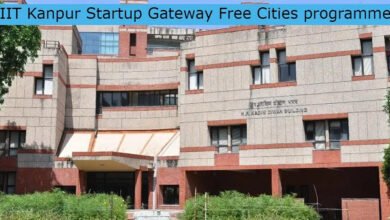Pasarnow, Indonesian e-grocer raised US $3.3 M funding led by East Ventures

Pasarnow, an Indonesian multi-channel e-grocery network, has raised US$3.3 million in early investment from East Ventures.
Other angel investors included SMDV, Skystar Capital, Amand Ventures, Prasetia Dwidharma, and others.
Pasarnow will utilize the funds to extend its regional reach and enhance its grocery supply chain and last-mile solutions capabilities.
Pasarnow wants to grow into new locations, employ top people, improve its data and technical infrastructure, and build frontline small hubs, which are micro warehouses. The hubs, which will be added to the existing 10 hubs around Greater Jakarta, are meant to enable rapid delivery and provide consumers with the finest last-mile fresh produce options. They’re in heavily inhabited locations with adequate fresh and frozen food infrastructure.
“Currently, Pasarnow operates in Greater Jakarta and Bandung, with over 100 full-time employees and 200 daily workers and driver-partners,” said Donald Wono, CTO and co-founder of Pasarnow. “This funding round enables us to cater to more customers and further increase our tech capability.”
Pasarnow, a multi-channel platform founded by Wono, James Rijanto, and Cindy Ozzie in 2019, seeks to simplify Indonesia’s convoluted and layered fresh goods supply chain and offer quality food items to its clients.
“Ensuring product freshness when it reaches the customers is supremely challenging. Food products like fruits, vegetables, and frozen meat are susceptible and perishable, requiring fast and temperature-controlled delivery, which causes expensive logistics costs,” said CEO Rijanto.
“That is why Pasarnow has been investing heavily in our technology and operational infrastructures to solve these issues. Furthermore, having a multi-channel platform helps us in achieving faster economies of scale and in creating greater efficiency in our operations,” he added.
Pasarnow integrates a multi-channel ordering system into a single mobile app to deliver a customized customer experience depending on channel segmentation: B2B and B2C.
To satisfy the demands of individual clients, each channel has its own set of prices, incentives, and essential features. The operational back-end collects all orders and creates a demand forecasting system to assist its 1,000+ farmers and suppliers in better planning and optimizing harvesting and delivery timetables. Pasarnow is able to provide clients with fresh, high-quality goods at fair-trade prices while also reducing waste.
In 2019, Indonesia’s grocery retail market is expected to be worth US$108 billion, with online grocery accounting for less than 1% of the total. By 2025, online grocery retail is expected to grow to about US$13 billion.
Pasarnow has expanded its operations to additional locations, claiming a 400% rise in B2C orders and doubling its monthly income as a result of a shift in customer behavior toward purchasing food online as a result of the COVID-19 epidemic.
East Ventures, co-founder and Managing Partner of Willson Cuaca, said, “The changing shopping behaviour of consumers due to the COVID-19 pandemic has brought about another challenge in the grocery industry. Customers demand fresh and high-quality produce daily amidst the complex grocery supply chain. Pasarnow comes to tackle the challenge, eliminating inefficiencies in the process through its data-driven business model.”





